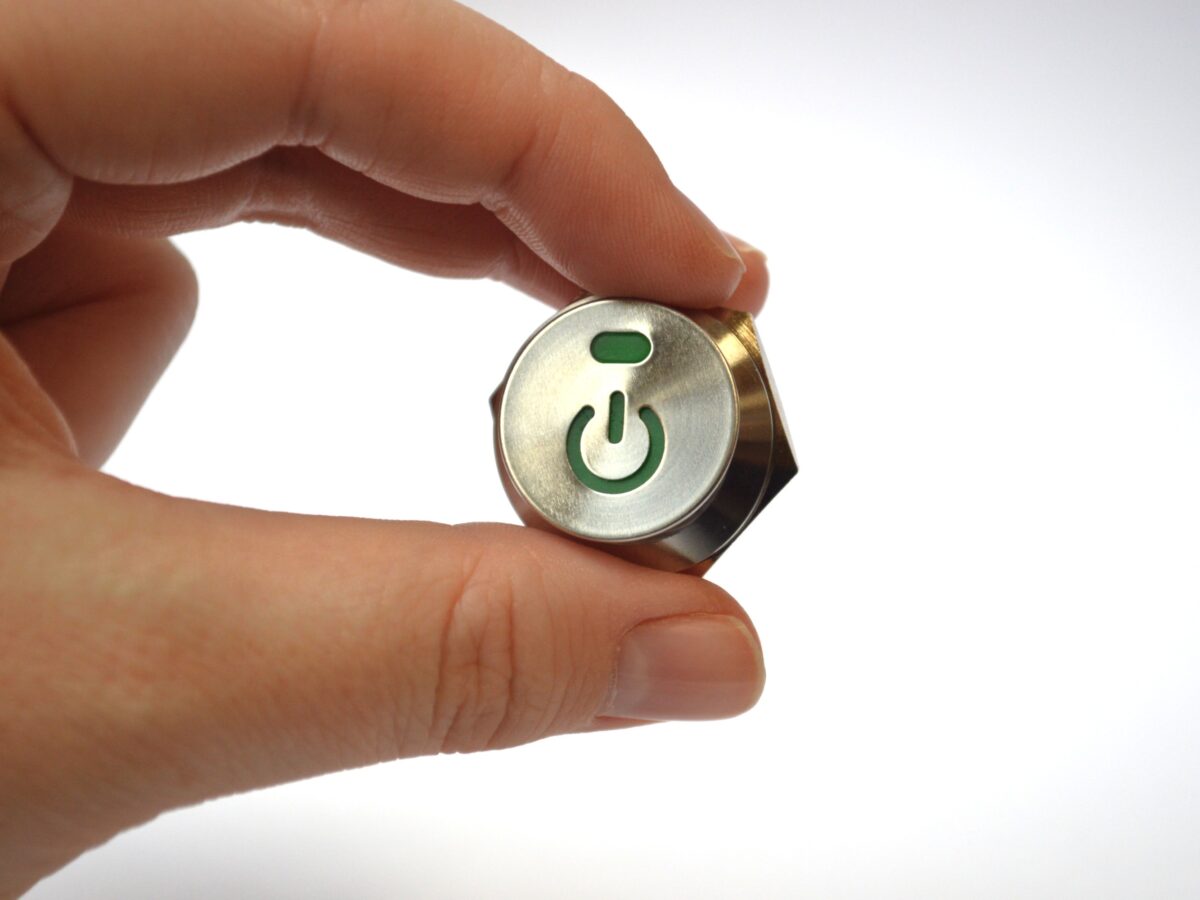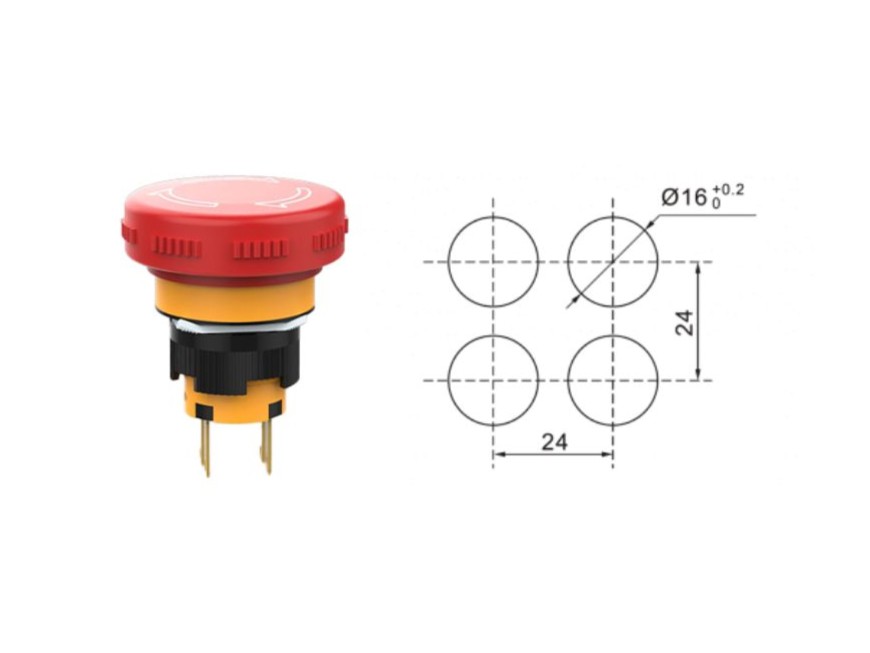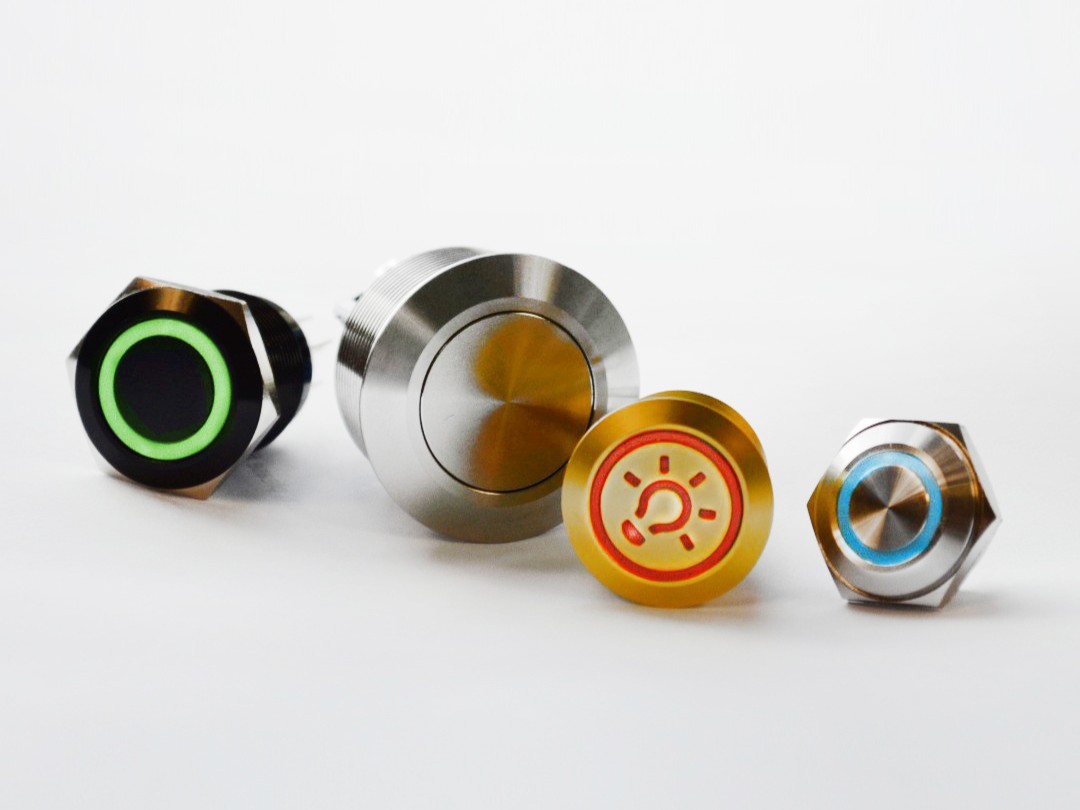Momentary vs Latching
If a switch is momentary, this means that when you press it, it will immediately return to its original state once released. A common example of a momentary switch would be the button you press at a pedestrian crossing, or to call a lift.
A latching switch (sometimes referred to as maintained) is one that remains in position once it has been pressed and has to be pressed again to return it to its original state. This generally means that the system it controls will keep running until the button is pushed again. Standard on/off light switches are a common example of a latching switch.
Samples
We recommend to all of our customers that they order a sample of the switches that they want to purchase, as a component may look right on paper, but you won’t know exactly what it feels like to use until you’re holding it.

Electrical vs Mechanical Life
The mechanical life of a switch refers to the number of cycles of no-load operation that it can withstand before it will need to be repaired or replaced, i.e. how many times the button is pressed. Whereas the electrical life of a switch is the number of load operation cycles that it can withstand before repair is needed, i.e. the number of times the contacts are opened and closed.
Components often have a higher mechanical life than their electrical life, which means that it is more important to pay attention to the electrical life of a component, as you’re more likely to reach the end of its electrical lifecycle than its mechanical one.
Switch Sizes
Many of our part numbers have a number in them that indicates their size; e.g. RJS1N1-19 is 19mm. However, this size actually refers to the size that the panel cut-out hole needs to be to fit it, rather than the bezel size of the switch.

Voltage
The voltage that we list for our LED switches usually relates to the voltage of the LED itself, with the voltage of the switch being higher. So for example, we may say the switch is 5V as that is the rating of the LED, but the whole switch can actually handle 24V.
Anti-Vandal Part Numbers
With so many products available, we know that all of our different part numbers can get confusing! Now, explaining every possible configuration of part numbers would take all day, but we can explain some of the most common elements of them.
As we have mentioned above, the digits in the middle of our anti-vandal part numbers (following the series name) indicate the size of the panel cut-out required. However, a 65/67/68 at the end of a part number refers to its IP rating. Our anti-vandal part numbers also include the actuator shape (i.e. high, flat, domed, etc), LED type & colour, LED voltage, and the material finish (e.g. brushed steel or black anodised).

Hopefully we’ve managed to answer some of your queries with this blog, but if there’s more you want to know about any of our products, you can call, email or submit a contact form and our Sales Engineers will be happy to help!
Interested in our products? Speak to us today!
How to place an order?
We operate Monday – Thursday (8 am – 5 pm) and Fridays (8 am – 4.30 pm)
Call us on +44 (0) 1234 213600 to speak to our Sales Engineers or e-mail us
on [email protected] alternatively, leave us a message using our online contact form.
View our full product range here | Download our recent product catalogue
Switch on.
Sign up to our mailing list for the latest news, product notification and so much more!
Just one click away…

